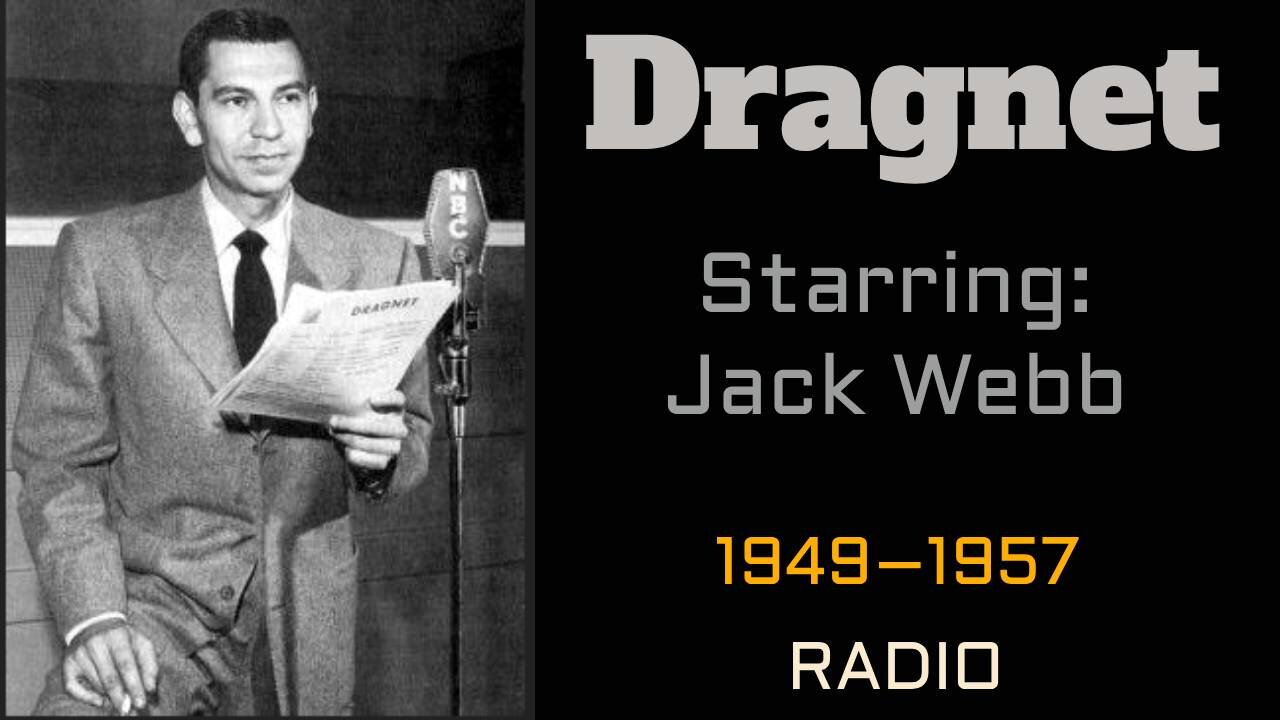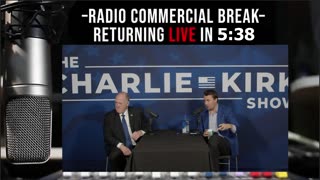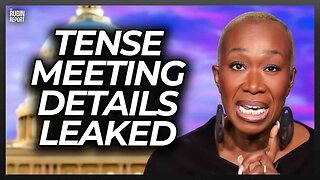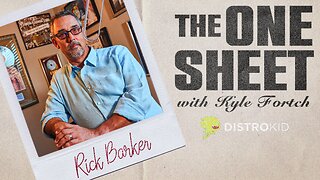Premium Only Content

Dragnet (Radio) 1952 ep145 The Big Border
Dragnet, the brainchild of Jack Webb, may very well be the most well-remembered, and the best, radio police drama series. From September, 1949 through February 1957, Dragnet's 30 minute shows, broadcast on NBC, brought to radio true police stories in a low-key, documentary style.
The origins of Dragnet can be traced to a semi-documentary film, "He Walked by Night" from 1948, in which Webb had a small role. Both employed the same Los Angeles Police Department technical adviser, used actual police cases, and presented the case in "just the facts" manner that became a hallmark of Dragnet. It is interesting to note that Webb employed that format in other radio series, some pre-dating the film mentioned above.
Dragnet was a long running radio and television police procedural drama, about the cases of a dedicated Los Angeles police detective, Sergeant Joe Friday, and his partners. The show takes its name from an actual police term, a dragnet, meaning a system of coordinated measures for apprehending criminals or suspects.
Dragnet was perhaps the most famous and influential police procedural drama in American media history. The series gave millions of Americans a feel for the boredom and drudgery, as well as the danger and heroism, of real-life police work. Dragnet earned praise for improving the public opinion of police officers.
Actor and producer Jack Webb's aims in Dragnet were for realism and unpretentious acting. He achieved both goals and Dragnet remains a key influence on subsequent police dramas in many media. The shows cultural impact is demonstrated by the fact that even after five decades, elements of Dragnet are known to those who have never heard nor seen the program. The ominous four note introduction to the brass and tympani theme music, titled Danger Ahead, is instantly recognizable as well as the shows opening narration:
"Ladies and gentlemen, the story you are about to hear is true. Only the names have been changed to protect the innocent."
When Dragnet hit its stride, it became one of radio's top rated shows. Webb insisted on realism in every aspect of the show. The dialogue was clipped, understated, and sparse -- influenced by the hard-boiled school of crime fiction.
Scripts were fast moving, but didn't seem rushed. Every aspect of police work was chronicled, step-by-step, from patrols and paperwork, to crime scene investigation, lab work and questioning witnesses or suspects.
Webb was a stickler for accurate details, and Dragnet used many authentic touches, such as LAPD's actual radio call sign, KMA-367, and the names of many real department officials, such as Ray Pinker and Lee Jones of the Crime Lab, or Chief of Detectives, Thad Brown.
Two announcers were used. Episodes began with announcer George Fennemen intoning the series opening:
"The story you are about to hear is true. Only the names have been changed to protect the innocent."
Hal Gibney described the basic premise of the episode. For example, "Big Saint", from April 26th, 1951, begins with:
"You're a detective sergeant. You're assigned to auto theft detail. A well organized ring of car thieves begins operations in your city. It's one of the most puzzling cases you've ever encountered. Your job -- break it."
The story usually began with footsteps and a door closing, followed by Joe Friday intoning something like:
"Tuesday, February 12th. It was cold in Los Angeles. We were working the day watch out of Robbery Division. My partner's Ben Romero. The boss is Ed Backstrom, Chief of Detectives. My name's Friday."
-
 LIVE
LIVE
vivafrei
3 hours agoMadness in Ireland! The War on Women, Children and the Attempt to Silence Whistleblower Jana Lunden!
1,790 watching -

The Charlie Kirk Show
1 hour agoWhat Did YOU Do This Week? + German Elections | Sen. Scott, Sacks, McCarthy | 2.24.2025
3.88K -
 DVR
DVR
Benny Johnson
2 hours ago🚨 New FBI Deputy Director Dan Bongino Speaking LIVE Right Now After SHOCK Trump, Kash Appointment
62.8K40 -
 52:36
52:36
The Dan Bongino Show
4 hours agoCutesy Time Is Over (Ep. 2429) - 02/24/2025
1.34M5.8K -
 1:10:46
1:10:46
The Rubin Report
2 hours agoLEAKED: Tense Meeting Details Leaked as MSNBC Lays Off Major Hosts
32K80 -
 1:03:25
1:03:25
Timcast
3 hours agoDAN BONGINO Named Deputy FBI Director Under Kash Patel, Deep State & Dem IN PANIC | Timcast LIVE
191K76 -
 2:31:41
2:31:41
Steven Crowder
4 hours ago🔴 Trump Drops a Bombshell: Bongino’s FBI Takeover & Crowder in Germany Exclusive
423K237 -
 1:59:34
1:59:34
LFA TV
23 hours agoTIME FOR PAYBACK! | LIVE FROM AMERICA 2.24.25 11AM
83.2K9 -
![🔴[LIVE TRADING] Bounce or Bust?! || The MK Show](https://1a-1791.com/video/fwe2/ad/s8/1/c/n/q/f/cnqfy.0kob-small-The-MK-Show-Feb.-24th.jpg) DVR
DVR
Matt Kohrs
15 hours ago🔴[LIVE TRADING] Bounce or Bust?! || The MK Show
55K2 -
 1:03:25
1:03:25
Kyle Fortch
4 hours ago $1.70 earnedRick Barker: Managing & Developing Taylor Swift, Breaking Artists Today & MORE | THE ONE SHEET S1E5
61.1K1